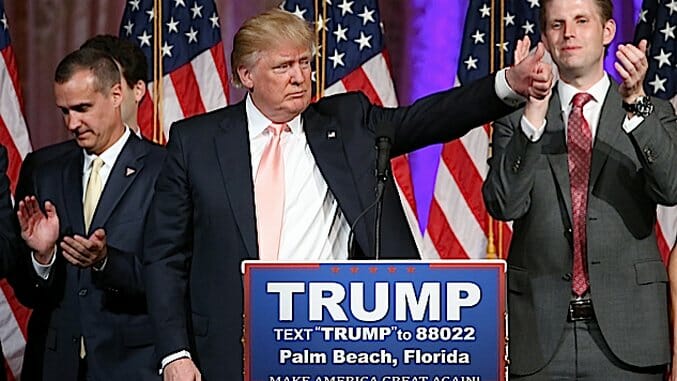Donald Trump is Already Making His Play For Bernie Sanders Supporters
Meanwhile, Republicans give Hillary Clinton serious consideration
Photo courtesy of Getty
You might expect a complicated election cycle to get less complicated as the number of candidates continues to dwindle, but it’s only getting stranger by the minute. While it looks more and more like a dispiriting Donald Trump vs. Hillary Clinton general election is inevitable, the question of who will actually vote for either candidate is very much up in the air. And the resolution, when it comes, could redefine the shape of party politics in America.
A Politico story today, for instance, examines the phenomenon of dyed-in-the-wool Republicans who are so adamantly against Trump that they might support Hillary Clinton. Which is crazy, on the surface, since Hillary Clinton has been the popular demon-spawn enemy of Republicans for almost 25 years. Even weirder, the Koch brothers have been making positive noises about Clinton, and it’s not at all clear that this is some kind of reverse psychology troll job.
-

-

-

-

-

-

-

-

-

-

-

-

-

-

-

-

-

-

-

-

-

-

-

-

-

-

-

-

-

-

-

-

-

-

-

-

-

-

-

-








































